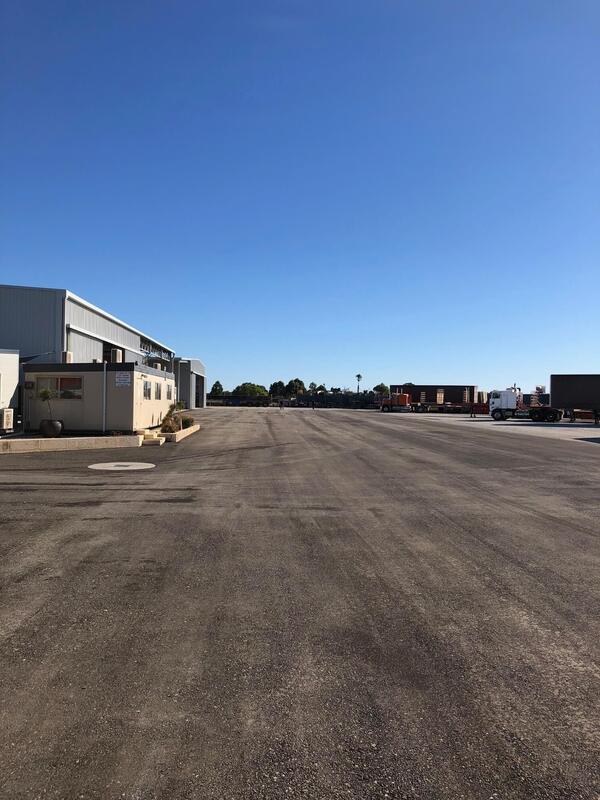Asphalt surfacing remains one of the most reliable and cost-effective solutions for driveways, car parks, roads, and commercial access areas throughout Sunbury, VIC. Despite its popularity, many property owners and businesses still have important questions about the process, the benefits, and the long-term maintenance involved.
At Sunbury Road Tech, we regularly assist clients across the region in understanding their asphalt options. This article answers the most common questions we hear about asphalt surfacing so you can make well-informed decisions for your next project.
What Is Asphalt Surfacing?
Asphalt surfacing involves applying a mixture of bitumen and aggregates to form a durable, weather-resistant surface. It’s commonly used for both new surface construction and resurfacing existing pavements. Asphalt is popular due to its smooth finish, strength under pressure, and relatively low cost compared to concrete or other alternatives.
Frequently Asked Questions About Asphalt Surfacing
How Long Does Asphalt Surfacing Last?
With proper installation and regular maintenance, an asphalt surface can last anywhere from 15 to 25 years. Lifespan depends on factors such as:
- The volume and type of traffic
- The quality of the base layer
- Environmental conditions in Sunbury
- Timely maintenance and sealing
Regular inspections and resealing every few years can significantly extend the surface life.
Is Asphalt Suitable for Both Residential and Commercial Use?
Yes. At Sunbury Road Tech, we install asphalt surfacing for a wide range of clients—from residential driveways and footpaths to heavy-use commercial and industrial areas. The key is selecting the right thickness and base materials for the expected load.
How Long Does It Take to Lay Asphalt?
The actual installation process is relatively quick. Most small to medium projects can be completed in one or two days. Factors that affect timelines include:
- Size and complexity of the area
- Preparation and base works required
- Weather conditions (asphalt should be applied in dry conditions)
After installation, light foot traffic is typically allowed within 24 hours, while vehicle traffic may require 48–72 hours depending on weather and curing.
Can Asphalt Be Installed in All Weather Conditions?
While asphalt is robust once installed, it must be laid in dry, moderate conditions. Cold or wet weather can affect compaction and bonding, leading to weak spots. In Sunbury, VIC, we typically recommend scheduling asphalt work during the warmer, drier months to achieve optimal results.
How Does Asphalt Compare to Concrete?
Asphalt and concrete both have their uses, but asphalt is generally:
- More cost-effective for larger areas
- Faster to install and cure
- Easier to repair
- More flexible, which helps prevent cracking under load and during temperature shifts
Concrete may be better for certain aesthetic or structural applications, but asphalt remains the preferred choice for roads, car parks, and functional driveways.
Does Asphalt Require Much Maintenance?
Compared to other surfaces, asphalt is low maintenance—but it’s not maintenance-free. To protect your investment, consider:
- Crack sealing as soon as cracks appear
- Resealing every 3–5 years
- Clearing debris and managing drainage to prevent water damage
These small, proactive measures help prevent larger issues such as potholes and erosion.
Is Resealing Necessary?
Yes. Asphalt resealing protects the surface from UV rays, water penetration, and general wear. Without sealing, the bitumen binder begins to oxidise and weaken, leading to surface cracks and brittleness.
In Sunbury, with a mix of hot summers and wet winters, resealing helps ensure longevity and performance.
What Is the Best Base for Asphalt?
A stable, well-compacted base is crucial to the long-term success of an asphalt surface. At Sunbury Road Tech, we typically use:
- Crushed rock or road base for light to medium traffic
- Heavier-duty base layers for commercial or industrial applications
Poor base preparation leads to early surface failure, so we ensure the foundation is right before any asphalt is applied.
Can Asphalt Be Repaired?
Absolutely. One of the key advantages of asphalt is its repairability. Whether it’s cracks, potholes, or surface fatigue, we can perform:
- Crack filling
- Patching
- Full resurfacing (overlay)
- Profiling and reshaping
Repairing issues early saves money and avoids more significant reconstruction later on.
Why Choose Professional Asphalt Installation in Sunbury, VIC?
A professionally installed asphalt surface not only looks cleaner and more refined but also performs better over time. At Sunbury Road Tech, we use proven techniques, quality materials, and modern equipment to deliver results tailored to our clients’ needs.
Our services support a wide range of projects including:
- Driveways for homes and acreage properties
- Access roads for farms and rural sites
- Commercial car parks and industrial yards
- Council and public infrastructure projects
Conclusion
Asphalt surfacing offers a reliable, cost-effective solution for a wide range of applications in Sunbury, VIC. Understanding the basics—from installation to maintenance—can help you get the most out of your surface investment.
If you have more questions or are ready to start your asphalt project, the team at Sunbury Road Tech is here to help. With local experience and a commitment to quality, we deliver surfaces built to last in Australian conditions. Reach out today for expert guidance and a no-obligation quote.
Call us on: 03 4159 2883
Click here to find out more about Sunbury Road Tech
Click here to complete our contact form and see how we can help with your driveway needs.

